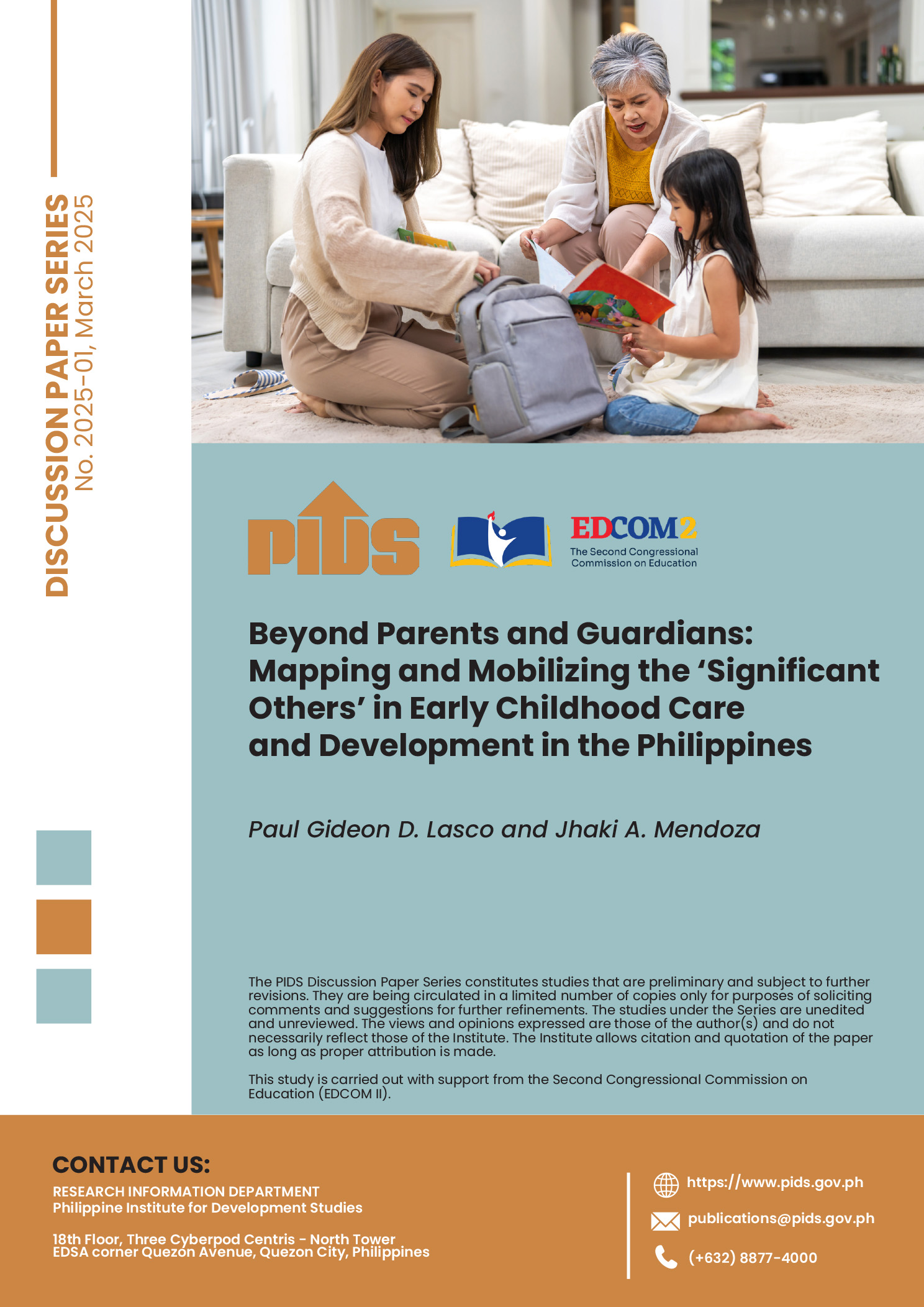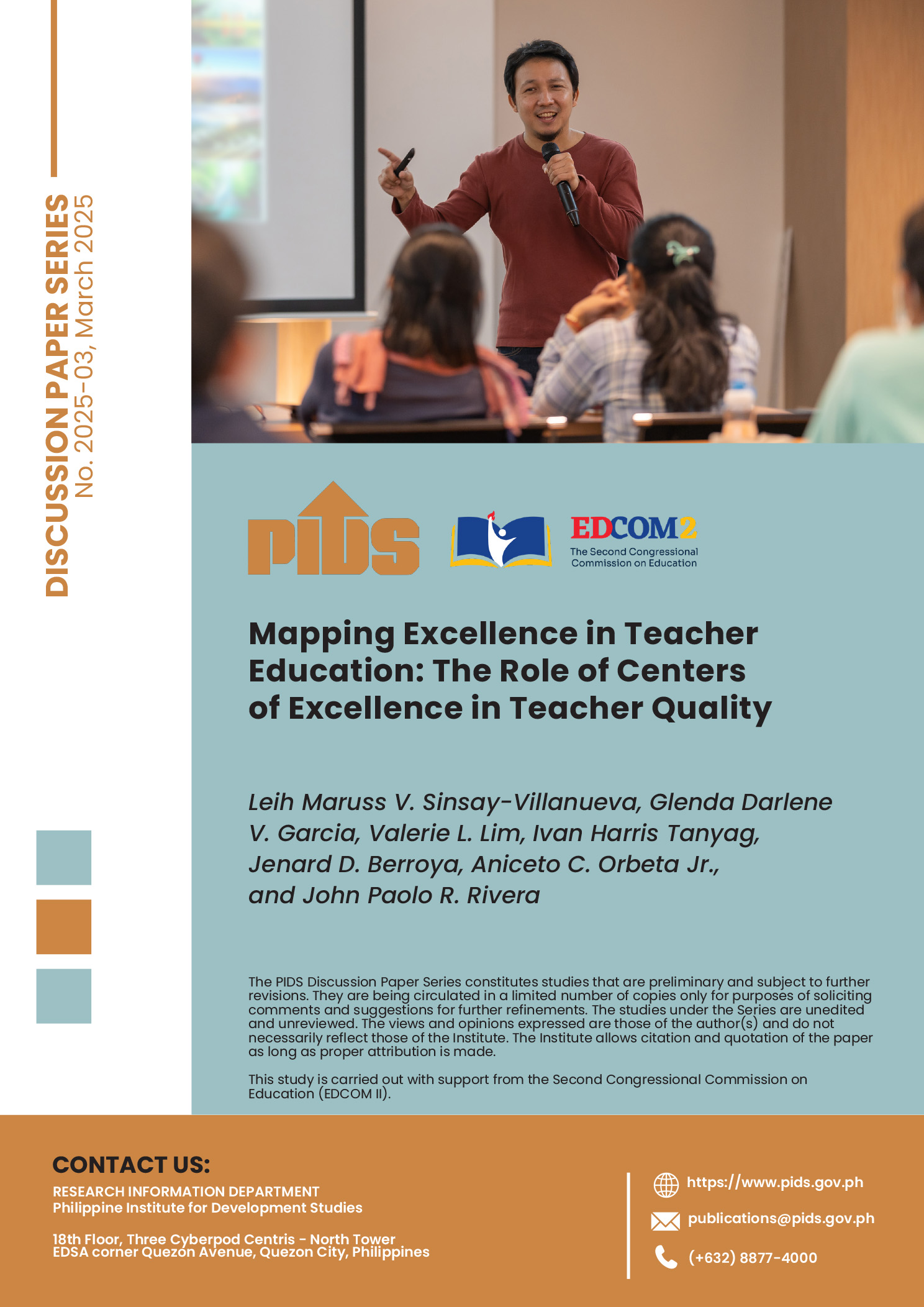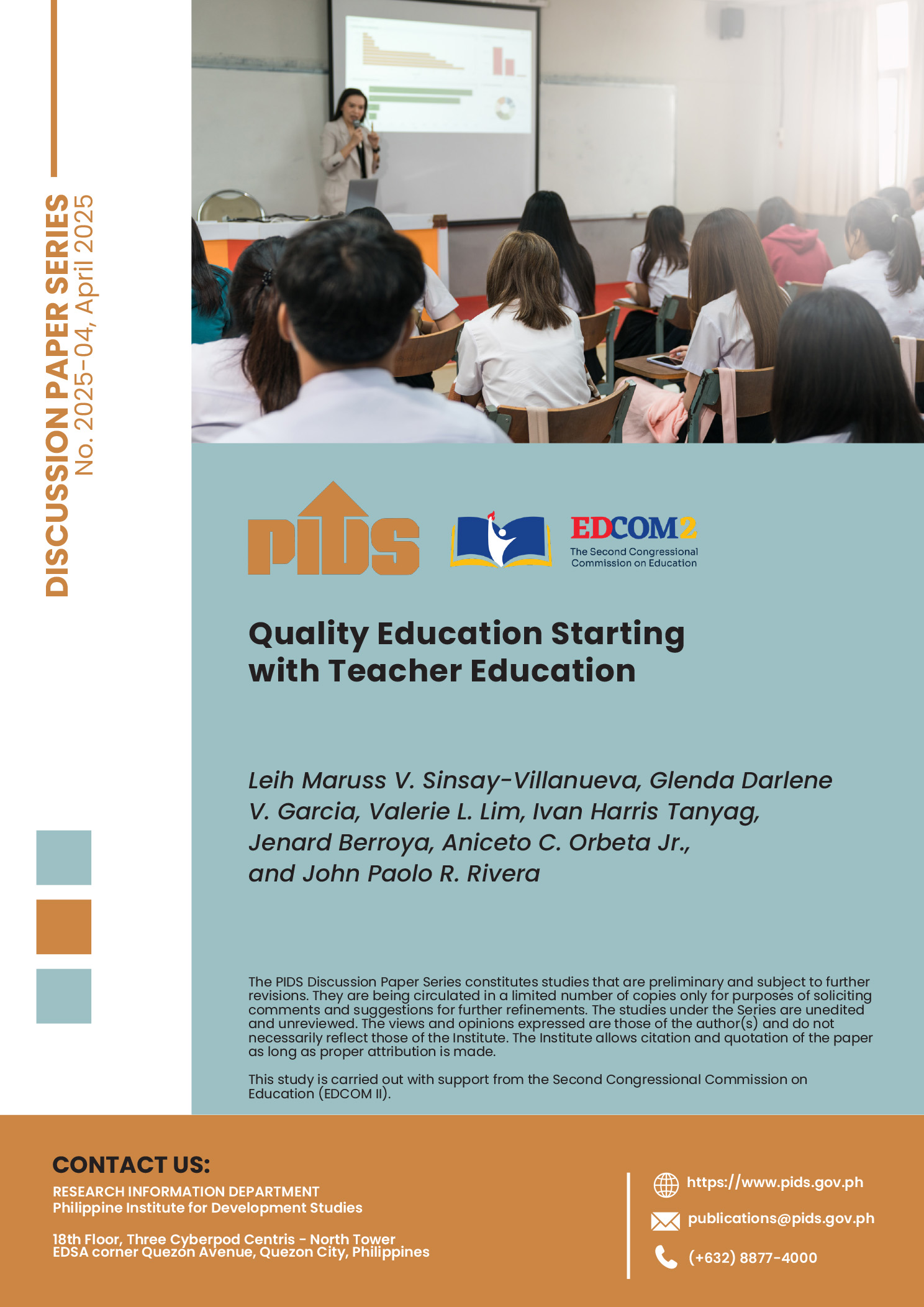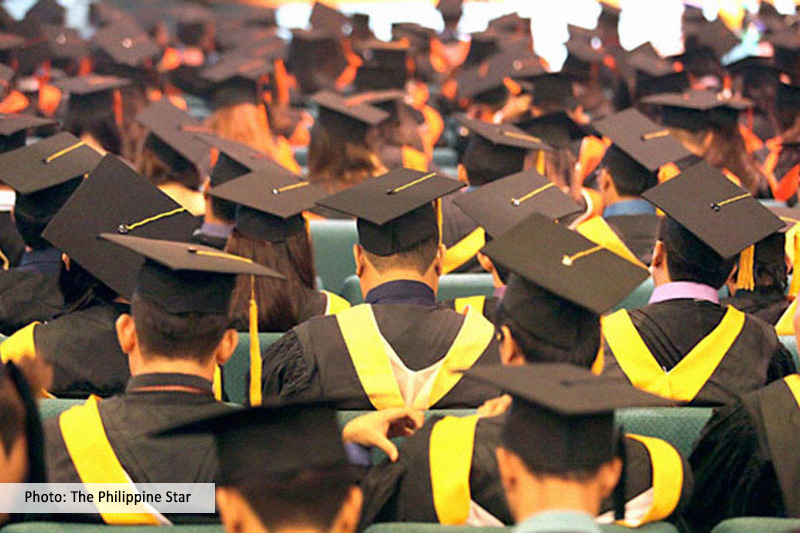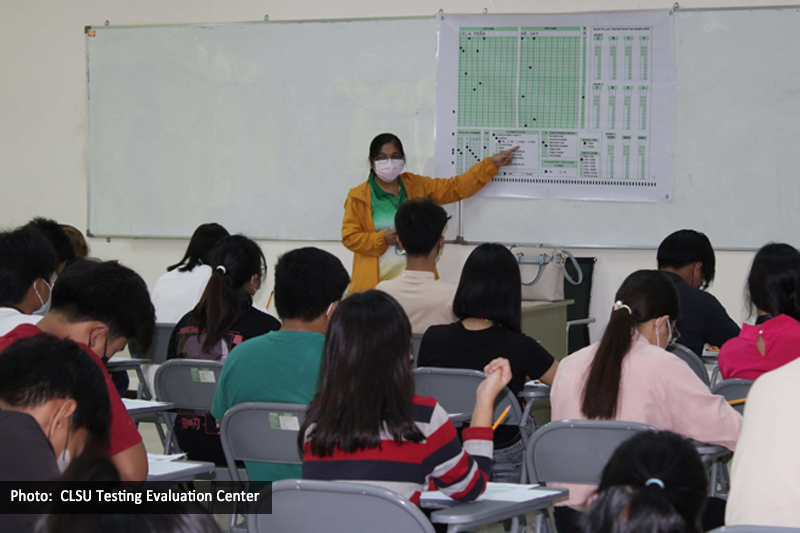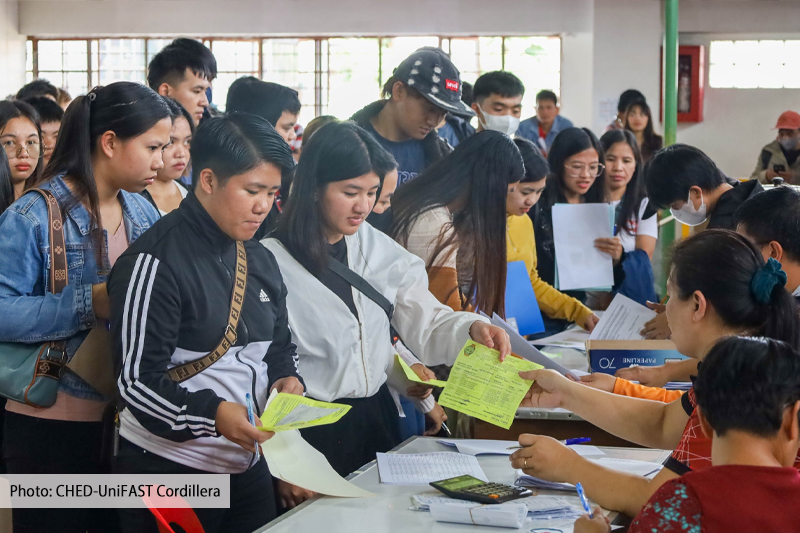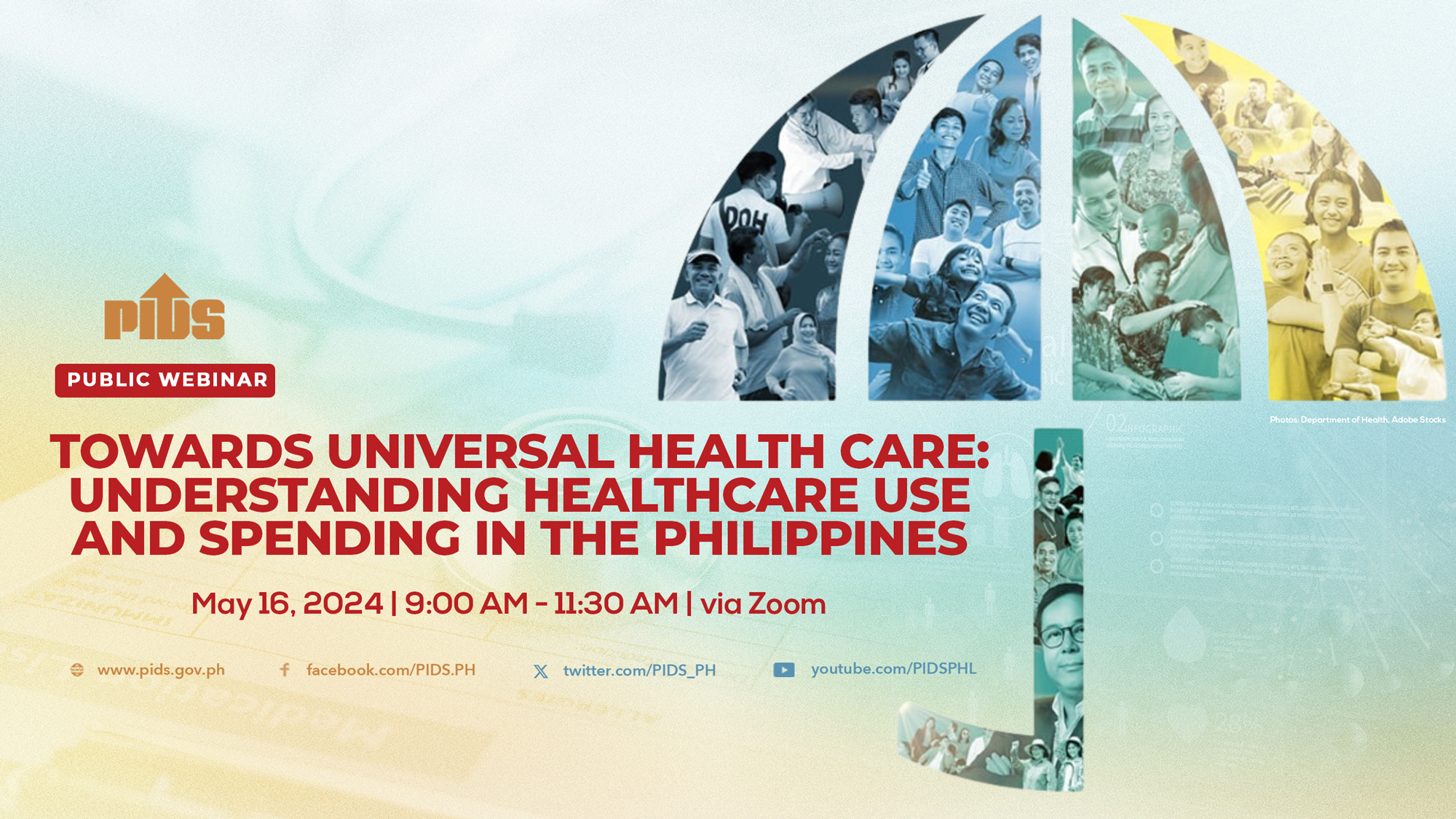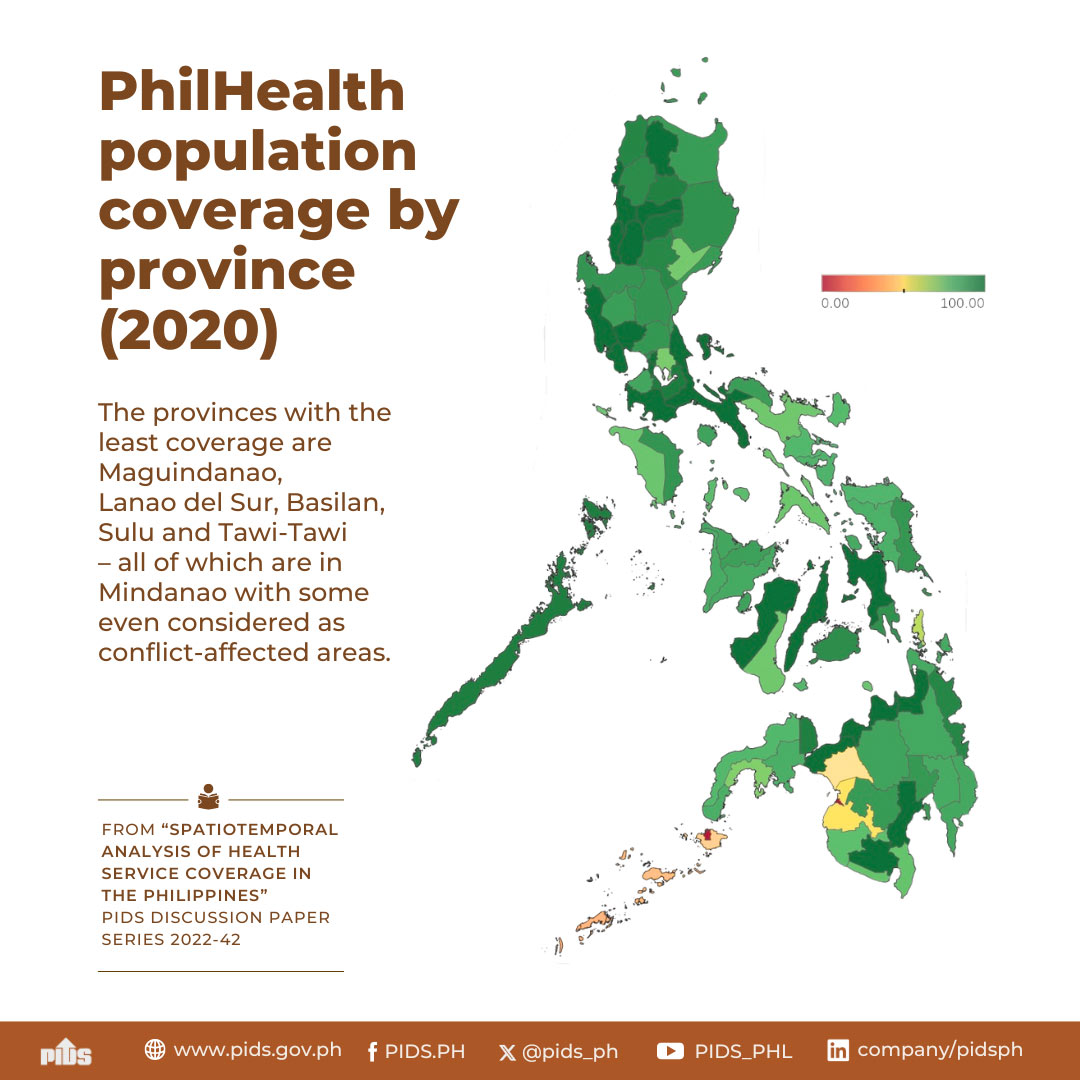THE decline in non-Covid-related spending for health and education during the pandemic is expected to reduce life expectancy as well as increase inequality nationwide, according to the Philippine Institute for Development Studies (PIDS).
In a discussion paper, PIDS Senior Research Fellows Michael R.M. Abrigo and Connie Bayudan-Dacuycuy as well as President Aniceto C. Orbeta Jr. said non-Covid-related human capital spending nationwide declined by at least P118 million between 2018 and 2020.
For households, the decline was higher for health at 15.2 percent compared with education at 0.1 percent due to falling incomes. Public sector spending, however, increased 9.4 percent for education and decreased by 9.2 percent for health.
“The drop in per capita health expenditures in the early Covid-19 pandemic relative to the 2018 baseline is expected to lead to a decline in life expectancy at birth, no change in average lifetime labor income, and a rise in income inequality. The impact on life expectancy may not be unexpected, given the significant drop in health expenditures in 2020,” the researchers said.
The authors, Abrigo, Dacuycuy, and Orbeta, also stated that other factors will complicate the situation of the country.
They said that a decline in early-life mortality and fertility rate, which has reached below replacement rate, as well as the reduction of life expectancy on the back of higher adult mortality, will “depress income per capita.”
The PIDS researchers said the early or premature death of adults in their prime will slow the growth of the working-age population compared to the elderly and children in the population.
Abrigo, Dacuycuy, and Orbeta also said that early deaths could prevent the country from maximizing the returns on its human capital investments.
“These compounding effects suggest that the country may fail to fully realize economic potentials brought about by demographic change, i.e., the so-called demographic dividends,” the researchers said.
The findings showed that life expectancy is seen to decline across almost all age groups. However, they noted that the drop from the pre-Covid-19 level is lower compared with lifetime exposure to COVID-19 human capital spending levels.
Lifetime labor income, meanwhile, is expected to decline among the young aged below 20 and to increase among younger prime-age cohorts, the researchers said. This is driven by changes in education spending.
The research also found that changes in education and health spending have “diverging effects on income inequality.” While per capita education spending was increased for older children in the early years of the pandemic, this will have no impact on improving inequality across populations.
The decline in health spending per capita, meanwhile, is expected to increase income inequality among the young and younger prime-age adults.
“Unfortunately, the decline in health spending during the early phase of the Covid-19 pandemic is likely to result in adverse long-term outcomes. This highlights the need to assess the health programs and other initiatives implemented for the young population during the pandemic,” the authors said.
“While the sustained education spending during the early pandemic phase is expected to yield favorable future economic outcomes, strategic education investments are still needed to improve the productivity of younger cohorts,” they added.
The National Economic and Development Authority (Neda) earlier said the Philippine economy will take a decade to go back to its prepandemic growth path due to the lingering effects of the pandemic and the lockdowns.
Former Socioeconomic Planning Secretary Karl Kendrick T. Chua said the pandemic and the lockdowns imposed by the government are expected to cost the Philippine economy a total of P41.4 trillion in the next 40 years.
Neda estimated that in 2020, the economy lost P4.3 trillion and is expected to continue to lose another P37 trillion in the next 10 to 40 years.

